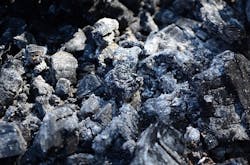Coal Ash Found in Georgia Power Plants
In Georgia, coal ash pollutants have been detected in groundwater at 11 power plants. According to Savannah Now, arsenic and lithium were detected at triple the safe level.
The nonprofit Environmental Integrity Project and Earthjustice compiled and analyzed the data released by power companies in response to federal regulations around coal ash, according to Savannah Now. The data said that utilities must store all coal ash in dry, lined and capped facilities away from lakes and rivers to protect water supplies from contamination.
According to Savannah Now, coal ash is the residue that remains after coal is burned to produce electricity. The ash contains pollutants including arsenic, boron, cadmium, chromium, lead, radium and selenium that have been linked to cancer, heart disease, reproductive damage and brain damage. The ash has been stored in unlined ponds on site at power plants, but that practice is seen as problematic. According to Savannah Now, pollutants can leak out over time or be washed out in the event of flooding.
Ten of the 11 plants are operated by Georgia Power. According to Savannah Now, Georgia Power detailed its progress on the closure of 29 coal ash ponds at 11 active and defunct coal-fired power plants across the state around the same time as the release of the nonprofits’ report. The utility’s plans call for the excavation of 19 ash ponds located adjacent to lakes or rivers, with the remaining 10 being closed in place using “advanced engineering methods and closure technologies,” according to Savannah Now.
“Georgia Power is meeting the compliance requirements outlined in the federal and state (Coal Combustion Residuals) rules for all of our ash ponds, including the one at Plant McIntosh,” spokesman John Kraft said to Savannah Now. “The pond is routinely inspected and Georgia Power monitors groundwater around the ash pond. In addition, we have developed a site specific closure plan, which details our intention to excavate the McIntosh ash pond and move the ash to a lined landfill. Closure activities are scheduled to begin in 2019.”
At Plant McIntosh and four other plants the placement of the coal ash ponds is too close to the underlying groundwater and is seen as problematic. According to Kraft, 5 ft or more separation was not achieved at Plants McIntosh, Bowen, Hammond, Scherer and Wansley. He said that Georgia Power does not consider McIntosh to be out of compliance with this rule because the rule describes a condition that must be met for continued operation. The company has already closed the pond at McIntosh and plan to excavate it this year.
